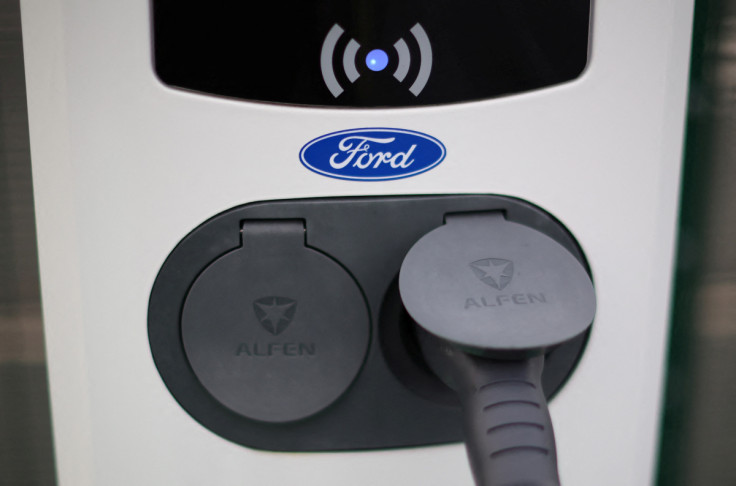Ford To Build Battery Plant In Michigan In Drive With Chinese Tech Partner

Ford Motor Co on Monday announced plans to invest $3.5 billion to build an electric vehicle battery plant in Michigan, betting that making the batteries in the United States will help and Chinese partner CATL attract U.S. customers to embrace a lower-cost technology pioneered in China.
Ford's plan to build the battery plant near Marshall, Michigan, hinges on a judgment that lower cost and faster recharging will attract many customers, including commercial fleet buyers, to accept the limitations of lithium-iron-phosphate, or LFP batteries.
Ford is also counting on its decision to manufacture LFP batteries in the United States at the wholly owned plant to take the political risk out of relying on a Chinese technology partner.
Building LFP batteries in Michigan also gives Ford a shot at significant U.S. battery manufacturing subsidies that could help it hit a goal of 8% profit margins on its EV operations by 2026.
The BlueOval Battery Park Michigan project is a "substantial step in the path to affordability and the path to 8%" margins, Ford Vice President Lisa Drake said on Monday during a media call.
Ford announced plans last year to begin using LFP batteries made in China by CATL in certain Mustang Mach-E electric SUVs and the Ford F-150 Lightning pickups offered in North America and Europe.
Ford has studied the driving habits of Mach-E and Lightning owners, and found half of Mach-Es are driven 32 miles or fewer a day, said Marin Gjaja, chief customer officer for Ford's electric vehicle operations.
Since then, diplomatic tensions between the United States and China have escalated. Also, Congress passed the Inflation Reduction Act, known as the IRA, which ties a significant share of federal subsidies to domestic production and raw materials content.
Drake said the IRA "was incredibly important" to Ford's decision to locate its fourth battery plant and its 2,500 jobs in Michigan. Michigan Economic Development Corp official Josh Hundt said the Ford jobs at the plant will pay $20 to $50 an hour.
The Marshall plant is scheduled to launch with 35 gigawatt-hours of capacity - enough for 400,000 EVs a year - and production should start in 2026. The site has room for expansion, Drake said.
The Marshall factory is one of four battery plants Ford plans has so far announced plans to build in North America and Europe.
CATL would license technology to Ford to produce lithium iron phosphate batteries in Michigan, and would provide the U.S. automaker with technical assistance, Ford said.
Ford last year agreed to form a joint venture with South Korean battery maker SK Innovation to build EV battery factories in Tennessee and Kentucky.
The automaker has a goal of building 600,000 EVs a year by the end of 2023.
Automakers and EV battery producers are racing to set up manufacturing in the United States to take advantage of federal subsidies that could generate up to $45 per kilowatt hour (kWh) to offset the costs of production.
The subsidies for U.S. battery production could be more lucrative for automakers and battery makers than Washington's consumer subsidies for EV purchases. The IRA ties consumer subsidies to income, vehicle price and local content limits that could make many EVs ineligible.
Michigan competed against numerous states and countries for the plant, said Ford economic development director Gabby Bruno. The Michigan Strategic Fund on Monday approved up to $210 million in grants for the project along with other incentives.
© Copyright Thomson Reuters 2024. All rights reserved.




















